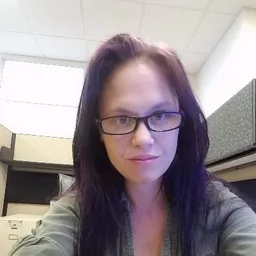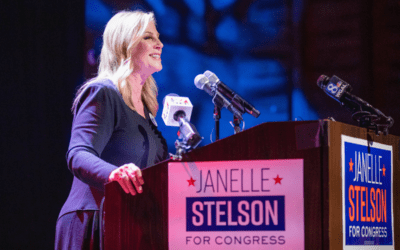
In 2022, Pennsylvania ranked third in the nation for proposed book bans in academic libraries and public schools. Here are ways to fight those bans.
When Ronna Dewey hears about a potential book ban, the first thing she thinks of is the human cost.
“We all want to make sure that we are living in a community where all people feel supported and welcomed,” Dewey said. “If kids aren’t feeling that way, they won’t be able to learn and if our kids aren’t learning then we are going to have a lost generation. If they are prevented from learning, then we are all going to lose.”
Dewey should know. The Chester County mother of three fought a proposed book ban in her local school district not too long ago, one that hit very close to home.
“In 2021, in my school district, there was a proposed ban of a few books,” Dewey said. “These books all had LGBTQ+ characters or were written by LGBTQ+ authors or had material about the LGBTQ+ community; I have a kid who is part of that community and it felt really, really personal to me. So I got involved. I knew I had to stand up and say something.”
It was the first time Dewey fought a book ban and it inspired her to join an organization that shared her values. Dewey is now the Pennsylvania state program director of the Red Wine and Blue, a community of over 500,000 suburban women across the country who organize to fight extremism in their communities. Due to the efforts of extremist organizations like Moms for Liberty, best known for pushing book bans, harassing teachers and school board members, and supporting anti-LGBTQ laws, the need for organizations such as Dewey’s is more necessary than ever.
“What we know is that people who are in favor of kids receiving accurate education and a wide variety of materials where they can see themselves and learn about others, those people, us, we are in the majority,” Dewey said.
The majority, she said, just needs to stand up and use their voice.
Dewey’s call to action carries extra resonance right now, in the midst of Banned Books Week, an event which began in 1982 as a response to a sudden surge in the number of challenges to books in libraries, bookstores, and schools.
The annual event celebrates the value of free and open access to information and brings together the entire book community — librarians, educators, authors, publishers, booksellers, and readers of all types — in shared support of the freedom to seek and express ideas.
Dewey stressed that even those without children in school districts where book bans are being pursued will still feel the impact. From lawyer fees to administrative costs and staff time, attempted book bans take a financial toll on every local taxpayer, not to mention the ideological toll attempts to censor books can have on a community
“I don’t want people to think if they don’t have kids in the schools that this isn’t important to them,” Dewey said. “There are so many reasons why this matters to every member of the community.”
How Do You Fight a Book Ban?
Dewey said there are a few steps to take if you hear about a proposed book ban or want to challenge one that may have already happened.
Research
The first thing you need to do is research, Dewey said. Find out what book is being banned, who is trying to ban it, and why.
“You will definitely want to read the book because you want to know if it’s appropriate and understand what the issues are,” Dewey said. “We can assume that any book that has made it into a school library has been properly vetted by all the people who know and understand child development.”
Find out the school policy surrounding reading material and books. Every school district should have their policies available publicly, whether it’s online or if you have to walk into the office and request a copy, Dewey said.
Get to know what the policy is and make sure it is being followed whether the book ban has simply been proposed or has already been implemented, Dewey said.
“In my school district, there is a very good policy in place but they did not follow the policy,” Dewey said. “So that becomes problematic because that is something they shouldn’t do.”
Find out when your local school board meets and what their conduct rules are pertaining to who can speak and for how long. Usually, any taxpayer within the district is given about 2 to 3 minutes during an open comment period. Unless the attempted book ban is on the agenda for the evening, then they will usually ask for input or comments at that time.
Then start preparing to attend a meeting by getting your thoughts together and a speech prepared.
Spread the Word
The next step, Dewey said, is to spread the word about the proposed book ban. Find allies in your community.
“One voice is great,” Dewey said. “Lots of voices are even better.”
Dewey suggested raising awareness among friends and family, and using social media to spread the word.
“Amplify student voices,”Dewey said. “Students who would be affected by any policies or any banning of books are the voices that are very important because that’s who is really going to lose out if any books are removed from the school.”
Make Your Voice Heard
Go to the school board meeting and challenge the ban, Dewey said. If it’s already in place, request a formal review. Make sure the policy wasn’t ignored and that it was implemented correctly.
What to Do if a Ban Isn’t Reversed
After a book is banned, unfortunately, you may not be able to get it back into the school library. But Dewey said that doesn’t mean the fight ends there.
“Keep talking about it,” Dewey said. “Start a banned book club. Have students run their own banned book clubs. Put those little free libraries across your community.”
Ensuring kids have access to the material, if they choose to read it, is the most important thing.
“It’s a very privileged viewpoint to say you can just buy it off Amazon,” Dewey said. “Not every kid has the ability to do that. Not every kid is safe in their own home to read particular books. But students have rights. Every student has rights. That’s why keeping [books] in the library is the most important.”
Support Our Cause
Thank you for taking the time to read our work. Before you go, we hope you'll consider supporting our values-driven journalism, which has always strived to make clear what's really at stake for Pennsylvanians and our future.
Since day one, our goal here at The Keystone has always been to empower people across the commonwealth with fact-based news and information. We believe that when people are armed with knowledge about what's happening in their local, state, and federal governments—including who is working on their behalf and who is actively trying to block efforts aimed at improving the daily lives of Pennsylvania families—they will be inspired to become civically engaged.


For Rep. Susan Wild, supporting PA families includes reproductive rights and much more
Rep. Susan Wild wants to be very clear with Pennsylvanians: Donald Trump is committed to taking away women’s reproductive freedom, but he is not...

School districts working with anti-LGBTQ groups can cost your kids’ schools millions
Parents across South Central Pennsylvania are worried about the potential financial impacts working with anti-LGBTQ groups may have on their school...

VIDEO: Trump distances himself from his anti-abortion views
Donald Trump appeared on WGAL on Tuesday and continued to distance himself from his anti-abortion views claiming that reproductive rights are now a...

VIDEO: Community pushback gets school board to rescind decision on denying gay actor’s visit
Cumberland Valley School Board offered a public apology and voted to reinstate Maulik Pancholy as a guest speaker a week after the board voted to...

VIDEO: Project 2025 brings nuclear armageddon back into vogue
Project 2025 is a titanic document, with plans ranging from cutting half of all government employees to targeting reproductive rights on a scale...





